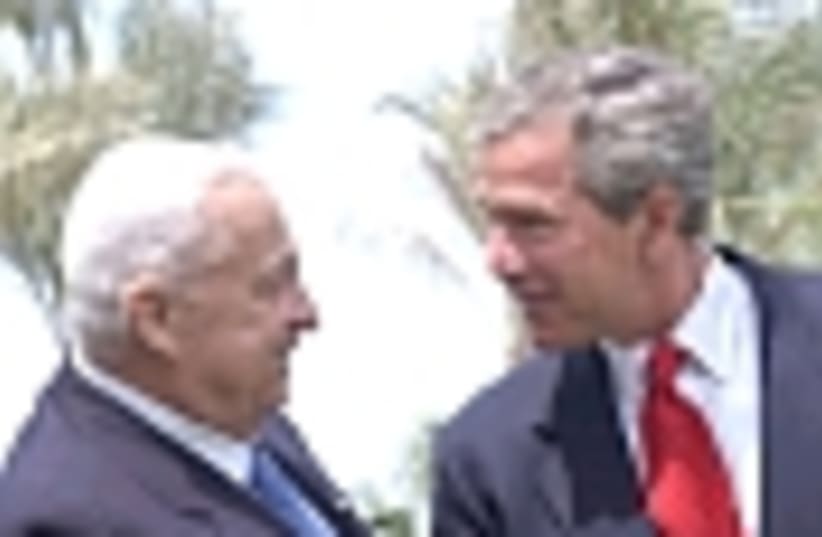| More about: | Condoleezza Rice, Ehud Olmert, Hadassah Medical Center, Mevaseret Zion |
Will Bush stand by Sharon?
Expanding Jerusalem is more than an urban planning issue. The test will be what happens in E1.


| More about: | Condoleezza Rice, Ehud Olmert, Hadassah Medical Center, Mevaseret Zion |